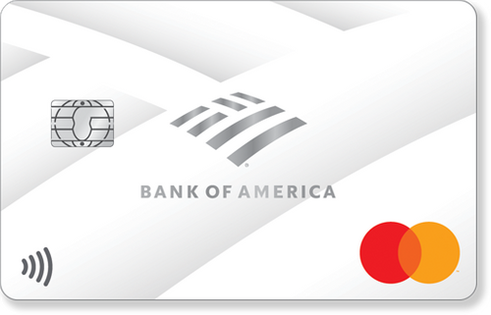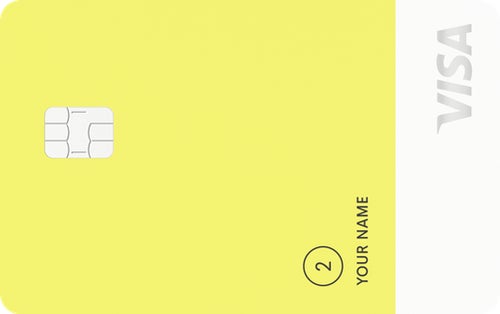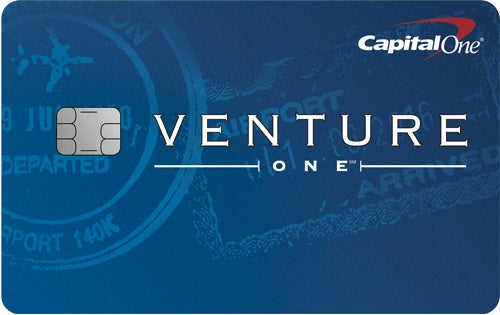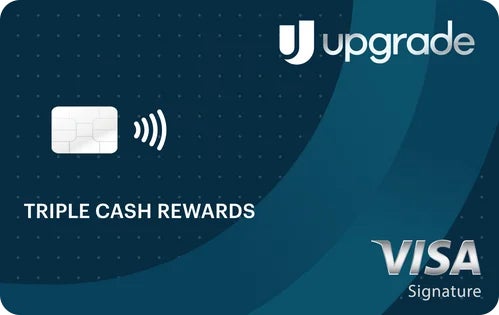Credit cards can come in handy for a range of unexpected circumstances most of us face at least once in our lives. A line of credit can be essential if you’re facing an emergency repair bill or sudden expense. Although we recommend creating an emergency fund to help when unplanned expenses pop up, a credit card can help you bridge the gap between paydays if you can’t. Still, they don’t offer a long-term solution.
If you do turn to a credit card for financial help, some credit cards offer an introductory 0% APR for a limited time. This can give you some breathing room from interest charges. If you’re in the market for a credit card to have on hand in case of an emergency, here are some to consider.
BankAmericard® credit card

The BankAmericard® credit card** offers a long introductory APR period that can lead to big savings over time. You’ll get a 0% introductory APR on purchases and balance transfers for 18 billing cycles (16.24% to 26.24% variable APR thereafter; balance transfers must be made within 60 days of account opening). This means you can consolidate debt and make new purchases with the card while skipping interest for the first 18 billing cycles, although a balance transfer fee will apply.
This intro APR offer can help you avoid interest charges if you have an emergency expense that you can’t pay off immediately. But you’ll have to pay off the purchase by the end of the promotional period to avoid interest entirely. Once the promotional period ends, this card loses most of its value, as it has no rewards program or other special financing options.
- Intro Balance Transfer APR
- 0% Intro APR for 18 billing cycles for any BTs made in the first 60 days. A fee of 3% for 60 days from account opening, then 4% will apply.
- Intro Purchase APR
- 0% Intro APR for 18 billing cycles for purchases
- Regular APR
- 16.24% – 26.24% Variable APR on purchases and balance transfers
- Balance Transfer Fee
- 3% for 60 days from account opening, then 4%
The BankAmericard® credit card** offers a long introductory APR period that can lead to big savings over time. You’ll get a 0% introductory APR on purchases and balance transfers for 18 billing cycles (16.24% to 26.24% variable APR thereafter; balance transfers must be made within 60 days of account opening). This means you can consolidate debt and make new purchases with the card while skipping interest for the first 18 billing cycles, although a balance transfer fee will apply.
This intro APR offer can help you avoid interest charges if you have an emergency expense that you can’t pay off immediately. But you’ll have to pay off the purchase by the end of the promotional period to avoid interest entirely. Once the promotional period ends, this card loses most of its value, as it has no rewards program or other special financing options.
- Intro Balance Transfer APR
- 0% Intro APR for 18 billing cycles for any BTs made in the first 60 days. A fee of 3% for 60 days from account opening, then 4% will apply.
- Intro Purchase APR
- 0% Intro APR for 18 billing cycles for purchases
- Regular APR
- 16.24% – 26.24% Variable APR on purchases and balance transfers
- Balance Transfer Fee
- 3% for 60 days from account opening, then 4%
If you experience a cash crunch while traveling outside the US, the Capital One VentureOne Rewards Credit Card** has no foreign transaction fees -- saving you an average of 3% per purchase -- compared with a debit card or a non-travel-focused credit card.
Even better, the VentureOne card offers travel accident insurance*** and an auto rental collision damage waiver*** to further insulate you from incidentals, as well as emergency card replacement if your card is lost or stolen.
Additionally, the introductory APR is ideal for temporarily avoiding interest if you have to charge an unexpected purchase. Cardholders can also earn an unlimited 1.25x miles per dollar spent on regular purchases and 5x miles per dollar spent on hotels and car rentals booked through Capital One. A generous welcome offer is also available to applicants who can meet the minimum spending requirement.
***Terms, conditions, and exclusions apply. Please refer to your Guide to Benefits for more details.
- Intro Balance Transfer APR
- 0% intro on balance transfers for 15 months
- Intro Purchase APR
- 0% intro on purchases for 15 months
- Regular APR
- 19.99% – 29.99% (Variable)
- Balance Transfer Fee
- 3% for the first 15 months; 4% at a promotional APR that Capital One may offer you at any other time
If you experience a cash crunch while traveling outside the US, the Capital One VentureOne Rewards Credit Card** has no foreign transaction fees -- saving you an average of 3% per purchase -- compared with a debit card or a non-travel-focused credit card.
Even better, the VentureOne card offers travel accident insurance*** and an auto rental collision damage waiver*** to further insulate you from incidentals, as well as emergency card replacement if your card is lost or stolen.
Additionally, the introductory APR is ideal for temporarily avoiding interest if you have to charge an unexpected purchase. Cardholders can also earn an unlimited 1.25x miles per dollar spent on regular purchases and 5x miles per dollar spent on hotels and car rentals booked through Capital One. A generous welcome offer is also available to applicants who can meet the minimum spending requirement.
***Terms, conditions, and exclusions apply. Please refer to your Guide to Benefits for more details.
- Intro Balance Transfer APR
- 0% intro on balance transfers for 15 months
- Intro Purchase APR
- 0% intro on purchases for 15 months
- Regular APR
- 19.99% – 29.99% (Variable)
- Balance Transfer Fee
- 3% for the first 15 months; 4% at a promotional APR that Capital One may offer you at any other time
Petal® 2 “Cash Back, No Fees” Visa® Credit Card

If you’re looking for an emergency credit card, it may also be your first credit card. And if you don’t already have an established credit history, you may not get approved for credit cards that require “good” credit or better. But there are cards for people with lower credit scores, and the Petal 2 “Cash Back, No Fees” Visa Credit Card, issued by WebBank, is among the best of them.
This starter credit card offers rewards, a relatively low APR range and a $300 to $10,000 credit limit based on creditworthiness -- features that are rare in these types of cards and that will give you more flexibility in an emergency.
- Intro Balance Transfer APR
- N/A
- Intro Purchase APR
- N/A
- Regular APR
- 18.24% – 32.24% (Variable)
- Balance Transfer Fee
- N/A
If you’re looking for an emergency credit card, it may also be your first credit card. And if you don’t already have an established credit history, you may not get approved for credit cards that require “good” credit or better. But there are cards for people with lower credit scores, and the Petal 2 “Cash Back, No Fees” Visa Credit Card, issued by WebBank, is among the best of them.
This starter credit card offers rewards, a relatively low APR range and a $300 to $10,000 credit limit based on creditworthiness -- features that are rare in these types of cards and that will give you more flexibility in an emergency.
- Intro Balance Transfer APR
- N/A
- Intro Purchase APR
- N/A
- Regular APR
- 18.24% – 32.24% (Variable)
- Balance Transfer Fee
- N/A
The Upgrade Triple Cash Rewards card has a unique rewards program for homeowners financing DIY house work and other fixes. If you’re able to pay off your emergency home or car maintenance charges in full on the first payment due date, you’ll sidestep any interest charges -- and earn 3% cash back on home, auto and health purchases. You can carry a balance and still earn rewards as well, but the variable interest rate will apply on remaining balances if you don’t pay the full balance before the payment due date.
The 3% cash back covers purchases from hardware stores, home supply stores, landscaping services, and heating, plumbing and air conditioning providers. Purchases from automotive part stores, car dealers, car washes, tires and towing services are included in the auto category. Health and beauty spas, gym membership, exercise equipment and pharmacies such as Walgreens and CVS also earn 3%. Other purchases earn a standard rewards rate of 1% cash back, and this card doesn’t charge an annual fee.
- Intro Balance Transfer APR
- N/A
- Intro Purchase APR
- N/A
- Regular APR
- 14.99% -29.99%
- Balance Transfer Fee
- Up to 5%
The Upgrade Triple Cash Rewards card has a unique rewards program for homeowners financing DIY house work and other fixes. If you’re able to pay off your emergency home or car maintenance charges in full on the first payment due date, you’ll sidestep any interest charges -- and earn 3% cash back on home, auto and health purchases. You can carry a balance and still earn rewards as well, but the variable interest rate will apply on remaining balances if you don’t pay the full balance before the payment due date.
The 3% cash back covers purchases from hardware stores, home supply stores, landscaping services, and heating, plumbing and air conditioning providers. Purchases from automotive part stores, car dealers, car washes, tires and towing services are included in the auto category. Health and beauty spas, gym membership, exercise equipment and pharmacies such as Walgreens and CVS also earn 3%. Other purchases earn a standard rewards rate of 1% cash back, and this card doesn’t charge an annual fee.
- Intro Balance Transfer APR
- N/A
- Intro Purchase APR
- N/A
- Regular APR
- 14.99% -29.99%
- Balance Transfer Fee
- Up to 5%
How to choose a credit card for emergencies
Finding the right credit card to use in an emergency can be difficult, particularly if you have imperfect credit or you’re just starting to build credit for the first time. Also consider any fees, as well as rewards programs and cardholder perks.
Here’s what to know:
- Eligibility requirements: Make sure you have a general idea of your credit score. This factor will determine which credit cards you’re eligible for. You may have to start with a secured credit card if you have no credit history at all, whereas cards like the Petal® 2 “Cash Back, No Fees” Visa® Credit Card can work well if you have limited credit history and are willing to start out with a low credit limit.
- The card’s annual percentage rate, or APR: If your card has a high APR and you’re unable to pay off the balance right away, you’ll have to deal with expensive interest charges. Any balance that isn’t paid off will accrue interest each month it remains unpaid.
- Annual fees: Try to find an emergency credit card that doesn’t charge an annual fee. Also look out for other fees like penalty interest rates, late fees and returned payment fees.
- Rewards rates: Some credit cards for emergencies offer rewards for spending, which can help you get something back for each dollar spent. There are even credit cards that have a welcome bonus you can earn if you meet a minimum spending requirement within a few months of account opening. Just avoid overspending in order to reach it.
Pros and cons of using a credit card for emergencies
Having some way to pay for emergency expenses is always a good idea. After all, having access to emergency funds can help you avoid falling behind on bills and facing late fees. But there are some downsides as well.
Pros
Emergency credit cards are there if you need access to a line of credit
You can control how much you borrow at a time
You can earn rewards for some of your purchases
Some cards have 0% intro APR offers that help you avoid interest charges for a time
Cons
Credit cards make it easy to overspend
Some of the credit cards above require higher credit scores
Interest rates are high, which can lead to expensive interest charges
Late payments and high debt levels can hurt your credit score
What types of credit cards are best for emergencies?
Some credit cards are better than others for financing unexpected expenses. An introductory APR will let you avoid interest while you take some time to pay off a large expense. A specialized rewards program will let you earn some cash back or other rewards to recoup some of your costs if you can pay it off right away.
Pay attention to the timelines or spending caps on these offers though -- there may be restrictions on these features.
When should you use an emergency credit card?
Using a credit card for emergencies makes the most sense when you need a fast and easy way to cover surprise expenses, but know you’ll be able to pay the balance in full when it comes due. An emergency credit card can also make sense for people who want a line of credit at the ready in the case of an emergency. This can be especially true for people who travel and want a credit card they can use for unforeseen expenses, whether it’s an emergency or not. For example, you may have enough money in your bank account to cover a purchase, but it might be harder to gain access to that money if you’re overseas. In this case, an emergency credit card can come in handy.
However, a credit card shouldn’t be your go-to method if you can’t afford a purchase. Instead, you should create a budget so you can track how much is going in and out of your account each month. This will help you know how much you have available to spend. Experts also recommend building an emergency fund to help keep you afloat if an unexpected expense pops up or if you lose your job. However, a credit card can be a suitable backup, as long as you understand the terms. Make sure you can repay the card balance as quickly as possible to minimize interest and don’t get into the habit of using a credit card for purchases you can’t afford to pay back.
Even if you have a 0% introductory APR offer, you’ll still need to make minimum payments each month to keep your account current. Missing this payment or paying late can cause considerable damage to your credit score and may eliminate your intro APR period.
How to effectively use your credit card for an emergency
To get the most out of an emergency credit card, use it only for purchases you have to make and have a plan in place ahead of time to pay down the charges. Here are some tips to keep in mind:
- Avoid the temptation to overspend. Charge only emergency purchases you can’t cover with cash and avoid situations where you’re tempted to buy unneeded items or make more charges.
- Have a plan to pay off the debt. If you have to cover an emergency car repair bill or pay for daycare on the fly, make sure you have a plan to pay the money back. Otherwise, credit card debt could become an issue.
- Look for emergency cards with intro APR offers. If you want to avoid interest charges for a limited time, look for credit cards that come with 0% interest on purchases, balance transfers or both for a year or longer.
- Use rewards to reduce your balance. Some emergency credit cards let you earn cash back for each dollar you spend, which you can redeem in different ways. If your card offers statement credits as a redemption option, you can redeem rewards to reduce the balance you owe on your card. Just don’t fall into the trap of overspending to earn rewards.
Alternatives to using credit cards for emergencies
While credit cards can be a useful tool when you face an emergency expense, there are other types of ways to pay.
- Emergency fund: Experts recommend saving six months’ worth of expenses in a high-yield savings account to have on hand in case of a surprise expense or job loss. While it will take some time to build this amount, working toward this goal can help prevent you from accruing credit card interest.
- Ask about payment plans: If you’re tempted to use a credit card to pay your utility bill, there may be another option. Sometimes bill companies and lenders will set you up with a payment plan if you’re facing financial hardship. They may even extend your due date to give you more time to pay. While there’s no guarantee, proactively asking for an extension or payment plan may save you from turning to a credit card.
- Personal loans: If you need a more substantial amount of money, a personal loan can offer you a lump sum of money up front (usually $2,000 up to $50,000), which you’ll repay with a fixed interest rate and fixed monthly payment over a set term. Some personal loans can be funded as soon as the same day. Compare different lenders and repayment plans to find the best fit for you.
- Home equity lines of credit (HELOCs): HELOCs use your home as collateral for the loan and provide a line of credit you can borrow against as needed. These lines of credit require a considerable amount of home equity to qualify, and they typically have a draw period where you can borrow money and a repayment period where you can no longer access new funding. Home equity lines of credit typically have variable interest rates and base your monthly payment on how much you actually borrow. However, if you fail to pay back your HELOC, you risk losing your home.
- Home equity loans: Home equity loans let you borrow against the equity in your home, then pay back the money with a fixed interest rate and fixed monthly payment. However, you need considerable home equity to qualify, and you have to settle on a specific amount of cash you need up front. Home equity loans can also take a month or longer to move through the process and provide funding, so they won’t work for emergencies when you need the money quickly. Like HELOCs, home equity loans are secured loans, which means you could lose your house if you’re unable to repay what you borrowed.
How to apply for a credit card
Once you find the right card, follow these tips to apply:
- Choose a card that matches your needs. That could mean choosing one with an introductory APR offer or other features.
- Follow the appropriate link above to be taken to the credit card issuer’s secure site.
- Fill out the appropriate financial and personal information including your name, address, date of birth, Social Security number, income, and monthly rent or mortgage payment.
- Use the card responsibly and always pay on time.
FAQs
If you’re traveling, we recommend bringing your emergency credit card with you to help navigate mishaps like a missed flight. Otherwise, leave your emergency credit card at home to avoid the temptation of non-emergency spending.
A credit score measures your creditworthiness, based on your track record with credit cards, loans and mortgages. Establishing a credit history and building your credit score sets the stage for renting an apartment, applying for a car loan and buying a house -- and, generally, the higher your score, the less expensive it is to borrow. So even if you don’t plan to regularly use an emergency credit card, having one will help you build credit with minimal effort.
Some credit cards are better than others for financing unexpected expenses. An introductory APR will enable you to avoid interest while you take some time to pay off a large cost. A specialized rewards program will let you earn some cash back or other rewards to recoup some of your costs if you can pay it off right away. Pay attention to the timelines or spending caps on these offers though: There may be restrictions on these features.
Technically, you don’t have to ever use your emergency credit card. It’s a good idea to make a small charge every few months and pay it off right away to keep your account active, however. Credit card issuers reserve the right to close your account without notice for lack of use.
Whether you close your credit card account can be a matter of personal preference, but there are some factors to consider. Closing a credit card -- particularly one that’s been open for a while -- may have adverse effects on your credit score. On the other hand, if you can’t responsibly use a credit card, closing an account may be a good option to avoid using it. Make sure you close the account properly if you choose to do so.
When you make purchases with a credit card, there are several risks that can have long-term impacts on your financial health. If you don’t make payments in full, you will accrue interest charges if you’re not using an introductory APR promotion. You may also incur late fees and other charges for missed payments. Ultimately, any irresponsible credit use can lead to debt and a damaged credit score.
*To qualify for the welcome bonus, you must open and fund a new Rewards Checking Plus account through Upgrade and make 3 qualifying debit card transactions from your Rewards Checking Plus account within 60 days of the date the Rewards Checking Plus account is opened. If you have previously opened a checking account through Upgrade or do not open a Rewards Checking Plus account as part of this application process, you are not eligible for this welcome bonus offer. Your Upgrade Card and Rewards Checking Plus account must be open and in good standing to receive a bonus. To qualify, debit card transactions must have settled and exclude ATM transactions. Please refer to the applicable Upgrade VISA® Debit Card Agreement and Disclosures for more information. Welcome bonus offers cannot be combined, substituted, or applied retroactively. The bonus will be applied to your Rewards Checking Plus account as a one-time payout credit within 60 days after meeting the conditions.
**All information about the Capital One VentureOne Rewards Credit Card and the BankAmericard credit card has been collected independently by CNET and has not been reviewed by the issuer.
The editorial content on this page is based solely on objective, independent assessments by our writers and is not influenced by advertising or partnerships. It has not been provided or commissioned by any third party. However, we may receive compensation when you click on links to products or services offered by our partners.





